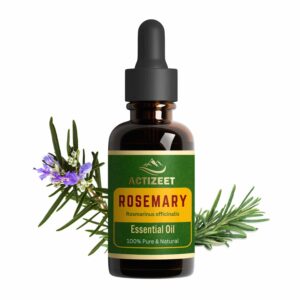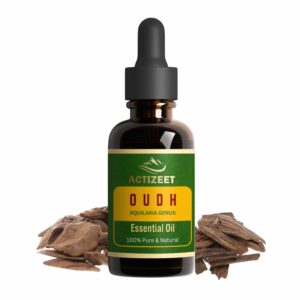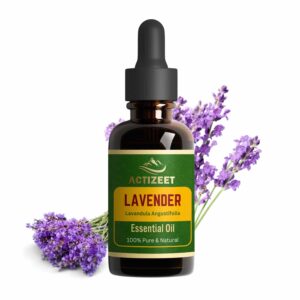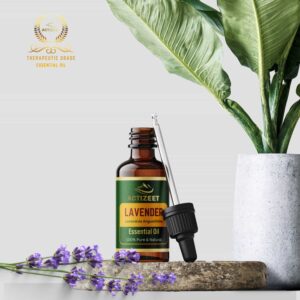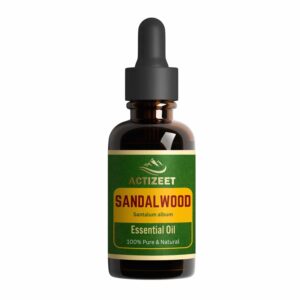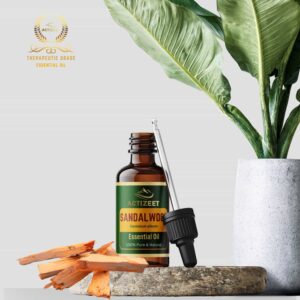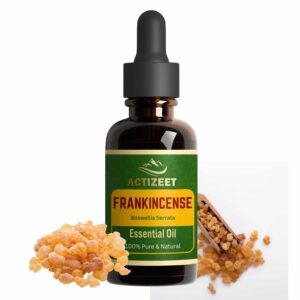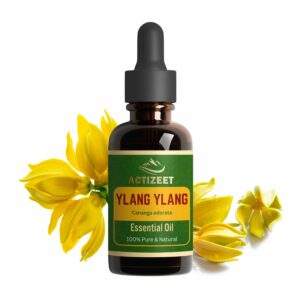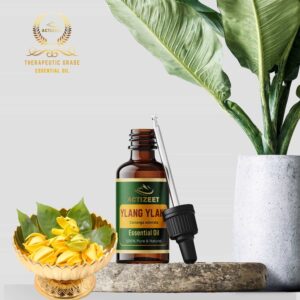Essential oils have gained immense popularity in recent years for their therapeutic properties and natural healing abilities. Derived from various plants, these highly concentrated liquids capture the essence and aromatic compounds of the plant through a process of steam distillation or cold-press extraction.
This results in potent oils that can be used for a wide range of physical and emotional ailments. In simpler terms, essential oils are like nature’s powerful elixirs, packed with the goodness of plants.
They contain countless bioactive compounds such as terpenes, phenols, and esters, each with its own unique set of therapeutic benefits. When used properly, essential oils can provide relief from various health issues, including nerve damage.
Table of Contents
ToggleNerve damage and its symptoms
Nerve damage, also known as neuropathy, occurs when there is harm or dysfunction to one or more nerves in the body. This condition can be caused by a variety of factors such as physical trauma, diabetes, autoimmune diseases, vitamin deficiencies, infections or exposure to toxins. The symptoms associated with nerve damage can vary widely depending on the location and severity of the affected nerves.
Common indications include shooting pain or numbness in the affected area(s), tingling sensations (commonly referred to as pins and needles), muscle weakness or spasms, decreased coordination, difficulty moving certain body parts and even changes in skin colour or texture. Living with nerve damage can be challenging as it often interferes with daily activities and significantly impacts one’s quality of life.
That’s where essential oils come into play; these natural remedies have been found to offer relief from nerve pain while promoting healing at a cellular level. In the following sections, we will delve into specific essential oils known for their efficacy in combating nerve damage-related symptoms.
Benefits of Essential Oils for Nerve Damage
How essential oils can help alleviate nerve pain and promote healing
When it comes to finding natural remedies for nerve damage, essential oils have emerged as a promising option. These potent plant extracts offer a variety of benefits that can help alleviate nerve pain and promote the healing process.
One of the key ways in which essential oils address nerve damage is by reducing inflammation. Inflammation often accompanies nerve injuries and can contribute to pain and discomfort.
Essential oils like lavender, peppermint, and helichrysum possess anti-inflammatory properties that work to calm irritated nerves, leading to relief from pain and swelling. Moreover, essential oils have been found to possess analgesic properties, meaning they can act as natural pain relievers.
Compounds present in certain essential oils interact with receptors in our nervous system responsible for transmitting pain signals, effectively blocking or reducing their transmission. This mechanism provides temporary relief from nerve pain without relying solely on pharmaceutical medications or treatments with potential side effects.
Scientific research supporting the use of essential oils for nerve damage
While traditional medicine has embraced the therapeutic potential of essential oils for various ailments, scientific studies are now shedding light on their effectiveness, specifically for nerve damage treatment. Research conducted at reputable institutions has demonstrated promising results regarding the use of these natural remedies. For instance, a study published in the Journal of Ethnopharmacology found that lavender oil exhibited significant anti-inflammatory properties when applied topically to rats with sciatic nerve injury (a common form of peripheral neuropathy).
The researchers observed reduced inflammation in the nerves along with improved motor function and decreased sensitivity to pain. Similarly, peppermint oil has shown great potential for managing neuropathic pain through its analgesic effects.
A study published in Anesthesia & Analgesia revealed that applying a peppermint oil solution to nerve-injured rats resulted in a significant reduction in pain behaviours and an improvement in nerve function. These scientific findings not only validate the traditional use of essential oils for nerve damage but also open doors for further exploration and development of natural treatment options.
Top Essential Oils for Nerve Damage Relief
Lavender Oil: Soothing properties that calm nerves and reduce inflammation
When it comes to finding relief for nerve damage, lavender oil stands out as a top contender. Known for its soothing properties, this essential oil has been used for centuries to alleviate pain and promote relaxation. Lavender oil can help calm irritated nerves and reduce inflammation in the affected area.
To use lavender oil for nerve pain relief, you have a few options. You can apply a few drops of diluted lavender oil directly onto the affected area and gently massage it in.
Alternatively, you can add a few drops of lavender oil to a warm bath and soak for 20 minutes to relieve overall nerve discomfort. Although lavender oil is generally safe to use, there are some precautions to keep in mind.
Make sure to dilute the essential oil with a carrier oil like coconut or jojoba before applying it topically to avoid skin irritation. Additionally, if you have any allergies or sensitivities, perform a patch test before using lavender oil extensively.
Peppermint Oil: Cooling effect that eases nerve discomfort and improves circulation
Peppermint essential oil is well-known for its cooling effect, which can provide relief from nerve discomfort caused by damage or inflammation. It contains menthol, which acts as a natural analgesic and helps numb the affected area.
To apply peppermint oil on damaged nerves, you can mix a few drops of the essential oil with a carrier oil such as almond or olive oil. Gently massage the mixture onto the affected area using circular motions until it is absorbed into the skin.
Another method is diffusing peppermint oil in your surroundings to inhale its aroma, which can also help ease nerve pain. While peppermint oil is generally safe when used properly, there are some safety considerations to keep in mind.
Avoid using undiluted peppermint oil directly on the skin, as it can cause irritation. Additionally, peppermint oil should not be used near the face or on children under 7 years old, as it may cause respiratory issues.
Helichrysum Oil: Regenerative properties that promote nerve regeneration and reduce scar tissue formation
Helichrysum oil is a lesser-known but powerful essential oil when it comes to nerve damage relief. It contains regenerative properties that support nerve regeneration and reduce the formation of scar tissue in damaged areas.
This makes helichrysum oil an excellent choice for healing nerves and promoting overall recovery. To incorporate helichrysum oil into your nerve damage treatment plan, you can dilute a few drops of the essential oil in a carrier oil and apply it directly to the affected area.
Gently massage it with circular motions to enhance absorption and promote its healing benefits. When using helichrysum oil, it is important to be aware of potential contraindications or interactions with medications you may be taking.
Consult with a healthcare professional before using this essential oil if you are on any specific medications or have any underlying medical conditions. Overall, lavender, peppermint, and helichrysum oils are all excellent choices when seeking relief from nerve damage symptoms.
Incorporating these oils into your treatment plan can provide soothing effects, alleviate pain, and promote healing for damaged nerves. However, always remember to use essential oils safely by following proper dilution guidelines and consulting with a healthcare professional if needed.
Lesser-Known Essential Oils with nerve-healing properties
Cypress oil: Supports healthy blood flow, reducing inflammation in damaged nerves
When it comes to essential oils for nerve damage, cypress oil is a hidden gem worth exploring. This oil is derived from the branches and needles of the cypress tree, and its therapeutic properties can be incredibly beneficial for soothing damaged nerves.
Cypress oil is known for its ability to support healthy blood flow, which is crucial for reducing inflammation in the affected areas. By improving circulation, it helps deliver oxygen and essential nutrients to the damaged nerves, promoting their healing process.
Cypress oil can be used both topically and aromatically to provide relief from nerve damage symptoms. For topical application, dilute a few drops of cypress oil with a carrier oil such as coconut or jojoba oil before gently massaging it onto the affected area.
The soothing sensation of cypress oil combined with its anti-inflammatory properties can help alleviate pain and reduce swelling associated with nerve damage. Alternatively, you can benefit from its aroma by adding a few drops of cypress oil to a diffuser or inhaling it directly from the bottle.
This method allows the aromatic compounds of the oil to stimulate your senses and provide calming effects throughout your nervous system. It’s important to note that while cypress oil is generally safe for use, some precautions should be taken.
Always perform a patch test on a small area of skin before applying it more extensively. Additionally, pregnant women or individuals with sensitive skin should consult with a healthcare professional before using cypress oil topically.
Geranium oil: Balancing effect on the nervous system, aiding in pain management
Another lesser-known essential oil that holds promise for nerve damage relief is geranium oil. Extracted from various species of geranium plants, this sweet-scented floral essential oil has been found to have a balancing effect on the nervous system, making it a valuable tool in pain management.
To harness the benefits of geranium oil for nerve damage, it can be applied topically or incorporated into your daily routine through aromatic methods. For topical use, combine a few drops of geranium oil with a carrier oil and gently massage it onto the affected area.
The soothing properties of geranium oil can help ease nerve pain and discomfort while promoting relaxation and reducing stress. In terms of aromatherapy, you can add a few drops of geranium oil to your diffuser or inhale it directly from the bottle.
The pleasant aroma can create a calming atmosphere and contribute to stress reduction, which is particularly beneficial for individuals experiencing nerve-related pain. While generally safe for most people, it’s important to be aware of potential allergic reactions or sensitivities when using geranium oil.
Perform a patch test before using it extensively, and discontinue use if any adverse reactions occur. If you’re pregnant, nursing, or have any underlying health conditions, consult with a healthcare professional before incorporating geranium oil into your nerve damage treatment plan.
Remember that essential oils should not replace medical advice or prescribed treatments. If you’re experiencing severe symptoms or have concerns about your nerve damage condition, always seek professional medical guidance.
Tips for Using Essential Oils Safely
Never apply undiluted essential oils directly to the skin
When using essential oils for nerve damage, it is crucial to dilute them properly with a carrier oil such as coconut, jojoba, or almond oil. Undiluted essential oils can be too potent and may cause skin irritation or allergic reactions.
To create a safe dilution, mix 2-3 drops of essential oil with 1 teaspoon of carrier oil. This will ensure that the healing properties of the essential oil are effectively delivered without any harm.
Perform a patch test before widespread use
Before applying any new essential oil to your body, it is wise to conduct a patch test. Apply a small amount of diluted essential oil onto a small area of your skin and observe for any adverse reactions such as redness, itching, or swelling. If you experience discomfort or irritation within 24 hours, discontinue use immediately.
Conclusion
Incorporating the use of essential oils into your nerve damage treatment plan can provide much-needed relief and support the healing process. Lavender oil’s calming properties soothe frazzled nerves while peppermint and cypress oils offer cooling effects that alleviate discomfort and improve circulation. Helichrysum and geranium oils aid in nerve regeneration and pain management, respectively.
Remember to prioritize safety by always diluting essential oils before topical application and conducting patch tests to ensure compatibility with your skin. As with any natural remedy, results may vary from person to person, so find what works best for you through experimentation and careful observation.
By harnessing nature’s healing power through these remarkable plant essences, you can take proactive steps towards managing nerve damage symptoms effectively while embracing a holistic approach to well-being. Embrace the potential benefits that lie within these aromatic treasures while nurturing yourself on this healing journey.
RECOMANDED PRODUCTS
-
Rated 4.72 out of 5
₹1,500.00Original price was: ₹1,500.00.₹1,200.00Current price is: ₹1,200.00. Incl. GST ADD TO CART Buy Now -
Rated 4.88 out of 5
₹1,500.00Original price was: ₹1,500.00.₹1,200.00Current price is: ₹1,200.00. Incl. GST ADD TO CART Buy Now -
Rated 4.63 out of 5
₹1,900.00Original price was: ₹1,900.00.₹1,450.00Current price is: ₹1,450.00. Incl. GST ADD TO CART Buy Now -
Rated 4.74 out of 5
₹1,500.00Original price was: ₹1,500.00.₹1,200.00Current price is: ₹1,200.00. Incl. GST ADD TO CART Buy Now -
Rated 4.72 out of 5
₹2,500.00Original price was: ₹2,500.00.₹1,950.00Current price is: ₹1,950.00. Incl. GST ADD TO CART Buy Now -
Rated 4.88 out of 5
₹1,500.00Original price was: ₹1,500.00.₹1,200.00Current price is: ₹1,200.00. Incl. GST ADD TO CART Buy Now -
Rated 4.80 out of 5
₹1,500.00Original price was: ₹1,500.00.₹1,200.00Current price is: ₹1,200.00. Incl. GST ADD TO CART Buy Now -
Rated 4.88 out of 5
₹1,500.00Original price was: ₹1,500.00.₹1,200.00Current price is: ₹1,200.00. Incl. GST ADD TO CART Buy Now
Related posts:
- Discover Top Essential Oils for Back Pain Relief
- Headache Relief: Discover Effective Essential Oils
- Natural Remedies: Best Essential Oil for Cough Relief
- Unlocking the Potential: Essential Oils for Diabetes Relief
- Heal Cracked Heels: Best Essential Oils
- Ultimate Guide: Essential Oil for Stress Relief
- Relieve Joint Pain Naturally: Essential Oil Remedy
- The Miraculous Benefits of Camphor Essential Oil: A Comprehensive Guide to Relieving Pain, Boosting Mental Health and Enhancing Skin Care


